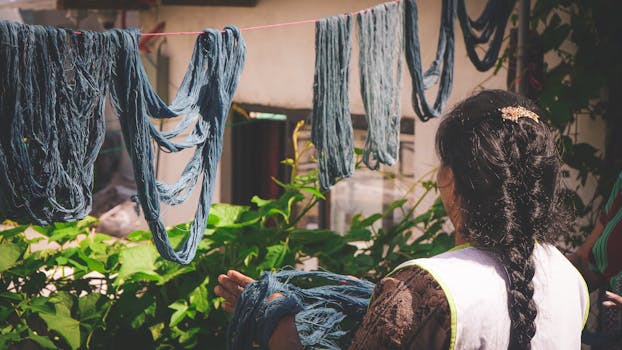Empowering Communities: The Role of Women in Africa’s Fiber Production

Empowering Communities: The Role of Women in Africa’s Fiber Production
Empowering Communities: The Role of Women in Africa’s Fiber Production is a crucial aspect of community development and economic growth in Africa. The fiber industry, which includes the production of cotton, textiles, and other natural fibers, is a significant contributor to the continent’s economy. Women play a vital role in this industry, and their participation has a positive impact on local communities.
The fiber industry in Africa is a significant sector, providing employment and income opportunities for millions of people. Women are involved in various stages of fiber production, from cultivation and harvesting to processing and marketing. Their participation in the industry not only contributes to their own economic empowerment but also has a positive impact on their families and communities.
Women’s Participation in Fiber Production
Women’s participation in fiber production is significant, with many women involved in small-scale farming, processing, and trading of fibers. In countries such as Ghana, Kenya, and Tanzania, women are the primary producers of cotton, which is a major cash crop. They are also involved in the production of other natural fibers such as sisal, jute, and hemp.
Women’s participation in fiber production has several benefits, including increased income, improved livelihoods, and enhanced economic empowerment. It also contributes to community development, as women often invest their income in their families and communities, leading to improved education, healthcare, and living standards.
Challenges Faced by Women in Fiber Production
Despite the significance of women’s participation in fiber production, they face several challenges, including limited access to credit, technology, and markets. Women often lack the resources and skills needed to improve their productivity and competitiveness, making it difficult for them to participate in the global market.
Additionally, women in fiber production often face social and cultural barriers, including limited decision-making power and unequal distribution of resources. They may also face environmental challenges, such as climate change, which can impact their livelihoods and communities.
Empowering Women in Fiber Production
To empower women in fiber production, it is essential to address the challenges they face. This can be achieved through initiatives such as training and capacity-building programs, access to credit and technology, and support for marketing and entrepreneurship.
Additionally, policies and programs that promote women’s economic empowerment and community development can have a positive impact on the fiber industry. These can include initiatives such as microfinance programs, vocational training, and support for women’s organizations and cooperatives.
Empowering women in fiber production is not only essential for their economic empowerment but also for the development of their communities. By supporting women in the fiber industry, we can contribute to poverty reduction, improved livelihoods, and sustainable development in Africa.
Conclusion
In conclusion, Empowering Communities: The Role of Women in Africa’s Fiber Production is a critical aspect of community development and economic growth in Africa. Women’s participation in the fiber industry has a positive impact on their families, communities, and the continent as a whole. By addressing the challenges faced by women in fiber production and promoting their economic empowerment, we can contribute to sustainable development and poverty reduction in Africa.




